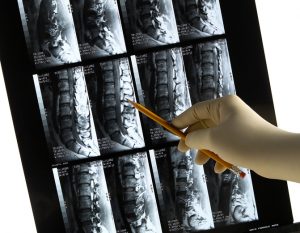The terms “slipped disc” and “herniated disc” are often used interchangeably. This leaves some patients feeling confused. Understanding these terms and what they mean can help you understand your spine and your spine health. If you’re suffering from either of these conditions, knowing how they can affect your spine health can also help you get the treatment you need to heal.
What are Spinal Discs?
The discs in your spine provide cushion between the vertebrae, helping your spine to maintain flexibility. Each disc is comprised of hard cartilage on the outside and a softer center on the inside.
What is a herniated disc?
A herniated disc occurs when the outer edges of the disc begin to crack, causing the soft interior to bulge out. This herniation can cause the disc to protrude from the tough casing that surrounds the spine, leading to pain, numbness and tingling.
What does it mean if a spinal disc has slipped?
Technically, spinal discs can’t slip out of place. However, this term can be used to describe a herniated disc, and is sometimes used to describe a bulging disc.
What is a bulging disc?
As people age, spinal discs start to stiffen and bulge from the spinal column. A bulging disc is one that has flattened slightly, so that the edges of the disc protrude farther than it should. A bulging disc can be painful, but is typically not as painful as a herniated disc. Patients suffering from a bulging disc may also have trouble walking, experience a feeling of heaviness in the legs and may feel tingling.
What can you do if you’re suffering from a herniated or bulging disc?
If you’re suffering from either of these conditions, work with a spine specialist to get treatment. At Southeast Orthopedic Specialists, our orthopedic surgeons provide natural treatment to patients suffering from conditions like a slipped disc. To get started, contact your spine specialist today at (904) 634-0640.
Return to Blog